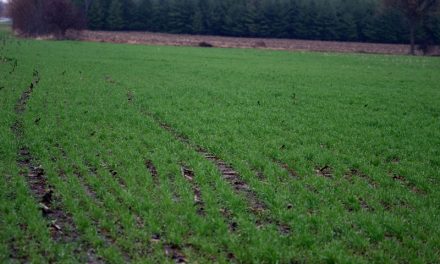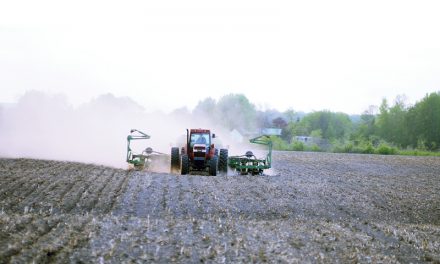by Donald R. Good, P.Ag.
AgriNews Staff Writer
Last month I reported on the request by an unknown individual, thought to be a farm activist, to OMAFRA under the Freedom of Information (FOI) legislation for specific farm business information, including name, contact info and the farmer’s FBR number. I noted in last month’s article that in the definition section of FOI there is a provision that states “Personal information does not include the name, title, contact information or designation of an individual that identifies the individual in a business, professional or official capacity.” A lot of the farm news in the print media and on-line stressed that the farmer’s personal information was exempt from disclosure, however, I was concerned about the impact of the above provision. Farming is a business, and as such, farm business information is subject to disclosure.
On August 10, OMAFRA issued its decision on the FOI request and has agreed to release the farmer information, except for the FBR number. Unless an appeal is successful, in effect the requester will receive the farmer’s name or the farmer’s business name and contact information. Where the farmer has a business name or corporation, the farmer’s actual name will also likely be provided as part of the contact info. The ministry has refused to release the actual FBR number. A large data base of farmers’ names, business names and contact info would be extremely useful if you are trying to market farm products or services but cumbersome if you are trying to locate a specific type of livestock farm. I have had a number of files where we needed to get information under the FOI legislation. It was a common practice to ask for very general information on the first request and once that data was received, to develop more detailed requests to get the useful information. Once the appeal process is complete and if the decision is upheld, watch for future FOI requests for more detailed information, i.e., how many FBR farms raise turkeys?
I have reviewed the submissions made by OFA to the ministry, to support refusal of the FOI request. This letter can be downloaded from the OFA website, and if you are interested in this subject I strongly suggest you do so. The letter dated July 17, to the ministry, lists four points why the ministry should refuse the FOI request. The first point deals with the issue of personal information and makes reference to section 2(3), which in a past the decision has been interpreted in a limited manner. With all due respect to interpret section 2(3) to eliminate the business exclusion to the farm sector would emasculate the section. The legal profession, veterinarians and many other businesses are focused on “individuals. This will be the major issue on appeal but applying section 2(3) in this way would be to re-write the FOI Act not interpret it.
The second point is the request requires the release of personal commercial and financial information. The third point is similar in that it suggests the request is for records gathered by the government for the purpose of collecting tax. Your FBR number allows you to save property tax and access government programs. The way I read the request to the ministry, the person is only asking for a list of farmers with a FBR, the FBR number and contact information. It may be, that these two points are made by OFA in anticipation of my comment above that after receiving general information more detailed FOI requests will follow. Given the limited request for information these two points are unlikely to succeed.
The fourth point is interesting. Section 20 of the FOI Act allows the ministry to refuse a request where the disclosure could reasonably be expected to seriously threaten the safety of the individual whose information is released. The OFA letter goes on to cite incidences of harm to farmers and agricultural related entities from animal right activists. The difficulty here is that the ministry would have to assume the requester is requesting the information for wrongful purposes. This is a civil matter but the concept of innocent until proven guilty would still have application. Any party stating or implying that another party is involved with wrongdoing has the onus of proving it. Although today with social media destroying people’s reputations without any scintilla of proof, in a legal process the concept still applies. I note that OFA filed its own FOI request to obtain the name of the requester; however, this request was refused.
The websites of both the Ontario Federation of Agriculture (OFA) and the Christian Farmers (CFFO) are anticipating launching appeals and recommending farmers launch individual appeals. I understand that the National Farmers Union-Ontario is doing the same. This includes all FBR farmers not just the farmers contacted by the ministry for their opinion before the ministry made its decision. The decision was issued August 10 and appeals must be filed within 30 days. Since all appeals will have common issues, I suspect there will either be one chosen as a test case or they will all be combined. As it is, the legal bill to all parties will be substantial. The requester having won on the main portion of the FOI request may appeal the refusal to provide the FBR number, and since this is very much part of the business information may have a strong case. I think I would rather they had my FBR number than my address but there may be other considerations.
I have reviewed a major legal literature website and searched section 2(3) of the FOI legislation. No specific cases interpreting this section were located. I also search under the FOI Act and hundreds of cases were listed. I reviewed them briefly, reading any case that seemed pertinent, however, did not find any relevant cases on the business inclusion provision of section 2(3) of the FOI Act. This was a quick review and I may have missed some cases or there may be cases not in this data base.
This will leave the parties arguing over the issues set out. Unfortunately for farmers section 2(3) is clearly and unambiguously worded. Business information is not personal information and not covered by the personal information exclusion. The ministry’s finding on this is strong, it is also likely, given this clearly worded provision that the farmers will have the onus of demonstrating they fall under one of the exemption referred to above. How do you demonstrate that your farm business is not a business when the government has issued you a Farm Business Registration number? The Commissioner under the FOI legislation who hears the first level of appeal and ultimately the courts on further appeal will have to determine how these interacting sections work. The FOI request only dealt with farmers registered under FBR.I am really pleased to see the farm organizations take a strong lead on this issue. I have always felt that they needed to be more involved with legal issues that affect farmers. Good work on this one.












